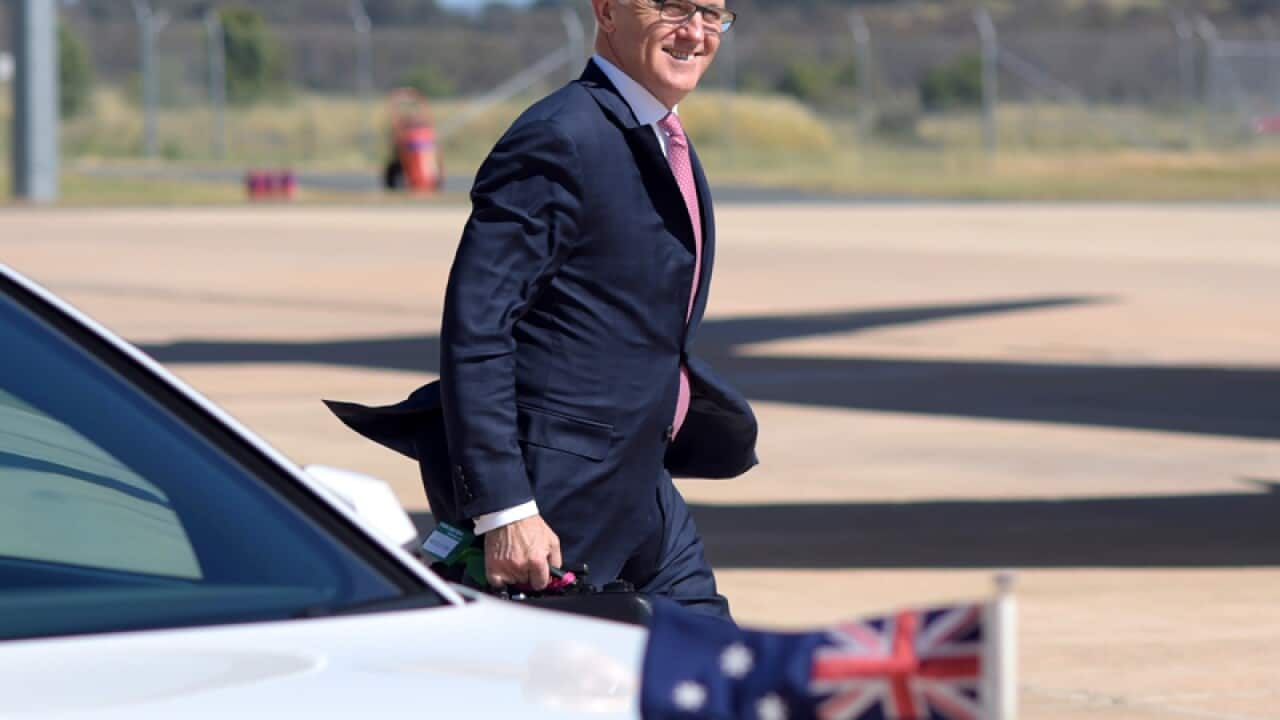Australian and Japanese universities and companies will increase collaboration with a focus on technology, as ties between the two regional partners are strengthened, Malcolm Turnbull says.
Speaking on Friday while on a 15-hour trip to Tokyo to visit his Japanese counterpart, Shinzo Abe, the prime minister focused on unity, saying the nations had shared values and important trade relations.
He said he also raised Australia's "heartfelt concern" about whaling.
"I have expressed today to the prime minister, as I have before, our very deep disappointment with Japan's resumption of whaling," Mr Turnbull said during a media conference following the talks.
"It's a matter of major concern, real heartfelt concern, principled concern."
The prime minister said when good friends like Australia and Japan disagree, they must express their worries honestly.
"In that way, perhaps over time, we will be able to resolve them," he said.
"Let us hope so."
Mr Turnbull also announced a joint research program into cyber security and hydrogen energy between the University of NSW and Kyushu University.
Japan has also agreed to recognise Australian university degree qualifications from 2016 and deals were signed on Friday to deepen university ties in the area of energy, health and medical research.
A round-table with leading researchers in innovation and Australian university vice-chancellors was followed by the signing of a new deal with Japan on regenerative medicine.
Regenerative medicine includes treatments around stem cells and gene therapy intended to restore the function of damaged organs and tissues, with the Japanese market to grow to more than $17 billion by 2030, according to the Japanese government.
Japan and Australia will also work together and exchange intelligence to improve regional security, "further enhance bilateral defence engagement" and discuss further joint military exercises.
"Right across the board the relationship is getting better and deeper, stronger and more people are being involved," Mr Turnbull said.
Also on the agenda for the Turnbull-Abe meeting was Japan's bid to build Australia's next generation of submarines.
Following the meeting, a joint statement was released, saying: "Prime Minister Turnbull welcomed Japan's participation in the process and noted Japan's commitment to it."
Japan, Germany and France are competing for the multi-billion-dollar contract to replace the Collins class submarines.
With tension continuing in the South China Sea, Mr Turnbull earlier in his trip encouraged Japan to work more closely with China and Korea, saying any military action which added to tension and disturbed the harmony of North Asia would "damage all our economies".
In the joint statement, the prime ministers "expressed their strong opposition to any coercive or unilateral actions that could alter the status quo in the East China Sea."
Mr Turnbull shares Mr Abe's interest in innovation as a key driver of economic growth, having released an "ideas boom" strategy earlier this month.
He took a selfie with the world's most advanced humanoid robot ASIMO during a visit to the National Museum of Emerging Science and Innovation in Tokyo.









